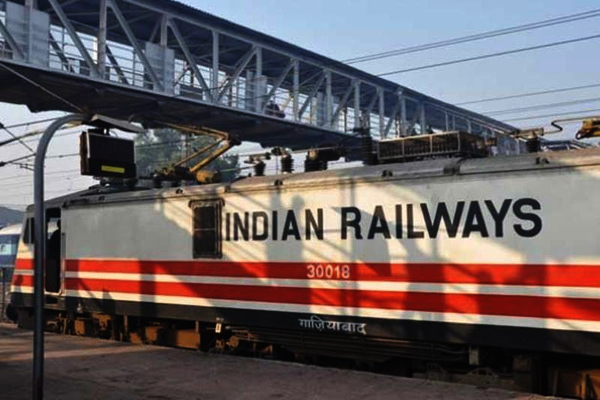While addressing a leading institute, Foreign Secretary Harsh Vardhan Shringla on March 9 said that India will soon be connected with Nepal by two railway links and six rail networks will be initiated for connectivity with Bangladesh.
Shringla said the railway links between countries are causing a “rapid shrinking of South Asia’s geography” and that the neighbourhood comes first and foremost for India amongst all its foreign policy priorities.
Shringla extensively delved into the importance of connectivity for the expansion of India’s overall engagement with the countries in the region. “Connectivity within parts of our neighbourhood by road, by water, by rail and by air, and often by multimodal transport, has steadily improved,” he said.
“Railways between countries are causing a rapid shrinking of South Asia’s geography. India and Bangladesh will soon be connected through six rail links and India and Nepal by two rail links,” he said.
At present, several rail links between India and Bangladesh are operational. “Travel between India and three of its neighbours: Nepal, Bhutan, and the Maldives — does not require visas. Our diplomatic missions in Sri Lanka and Yangon report an increasing trend in the number of visas being issued,” Shringla said.
He said the second area of focus has been the energy sector. “The Indian grid is connected to Nepal, Bhutan, and Bangladesh through high-capacity connections. Trans-national movement of electricity in the neighbourhood is a reality,” he said.
The foreign secretary said the countries in the neighbourhood are of special significance to India. “Our ties with these countries are underpinned by a shared history and culture. Policy initiatives are taken by India – and its neighbours — have implications for each other,” he said.
Shringla noted that the neighbouring countries have direct relevance to India’s states bordering these countries, adding that India realizes that its prosperity and growth are linked to that of its neighbours.
“We cannot develop unless our neighbours develop. It was in this spirit that the Cabinet Secretary wrote to all government ministries and departments asking them to accord priority to India’s neighbours in their international activities, programs, and projects,” he said.
The foreign secretary said mechanisms have been created to enable greater inter-ministerial coordination and enhanced focus on ‘neighbourhood first’.
“India’s foreign and security policies in this space operate at several levels and dimensions. We have separate bilateral relationships with each of our neighbours. We also interact with them on plurilateral constructs. We work with them within multilateral frameworks,” Shringla said.
Shringla said India’s ties with the neighbouring countries have direct relevance to the states bordering these countries.
Source: Zee
You may also like
-
IAF Aircraft Set Course For Exercise Eastern Bridge VII At Oman
-
India-us Working Together In Areas Like Critical Minerals, Supply Chains And Advanced Technologies: Shri Piyush Goyal
-
Defence Secretary to co-chair 5th India-Philippines Joint Defence Cooperation Committee meeting in Manila
-
2nd India-Japan Finance Dialogue held in Tokyo on 6th September, 2024
-
Prime Minister, Shri Narendra Modi welcomes Crown Prince of Abu Dhabi
